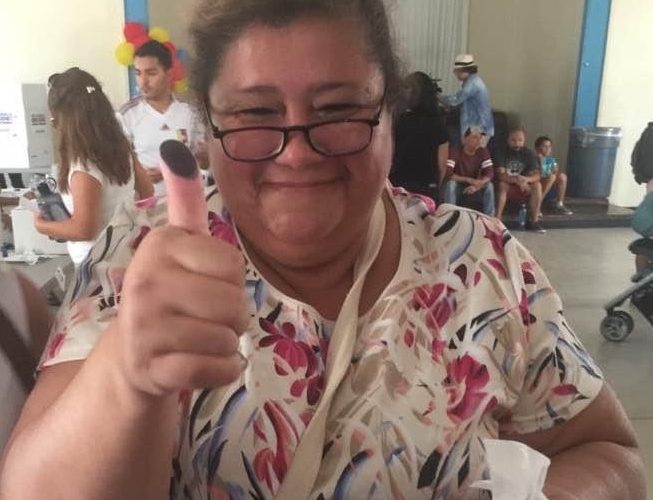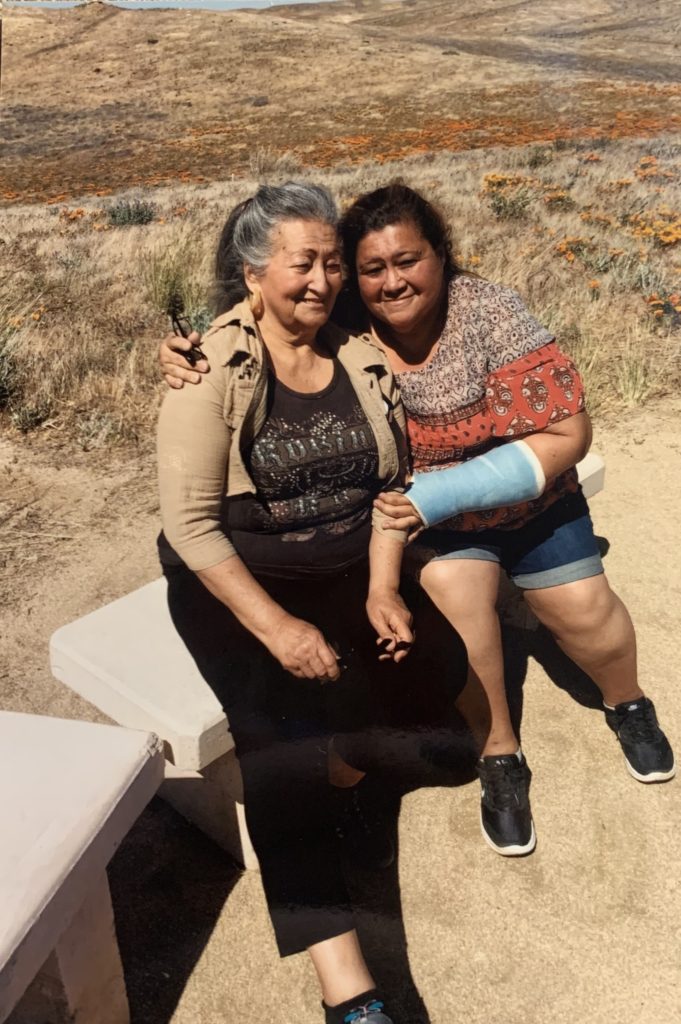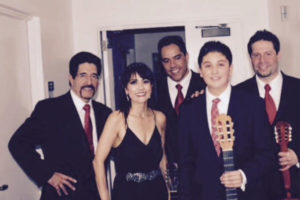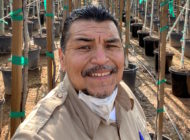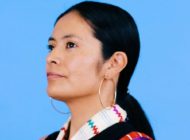For over three years, my mom has sent 100 dollars to her brother and sister each month. The combined salaries of my tío, tía and primo are enough to feed the family of 4 for one day.
By GISSELLE PERNETT
EL NUEVO SOL
It started with jars of Skippy Peanut Butter. The first and only time I was able to visit Venezuela was 2004 and the image of my mom hiding jars of peanut butter between the clothes in my suitcase still comes to my mind. At seven years old, I didn’t understand why we needed to bring peanut butter with us. That was the first indication that the lives of my tías, tíos and primoswas completely different than mine. As I grew up, peanut butter turned into clothes, then cell phones and eventually a monthly allowance of 100 dollars.
“El que sobrevive en Venezuela es porque está recibiendo ayuda de afuera,” I heard a family member said.
The image of the hidden jars of peanut butter always comes to mind. Venezuela is going through a major humanitarian and political crisis with millions of people lacking food and basic necessities due to a crisis caused among other factors by government corruption and an economic boycott imposed by the U.S. Those affected by the crisis include the majority of my mom’s family.
My mom, América Hernández, lived in the pueblo of Guarenas for 13 years before coming to the United States in 1990. Nothing was better than living in Venezuela, she recalls, but ultimately made the decision to leave out of curiosity and adventure.
“Cuando yo dije que me venía para acá, mis amigos me dijeron que yo era loca porque en Venezuela todo era bien. Venezuela lo llamaban el pequeño Nueva York y la vida era cómoda,” she said.
Once known to be the richest country in South America, Venezuela today has strayed far from its once admirable reputation. Today, according to a report issued by the United Nations Office of the High Commissioner for Human Rights (OHCHR) 7 million Venezuelans need humanitarian assistance and more than 4 million have recently fled the country. In April 2019, the report found, the minimum wage was $7 per month “and only covered 4.7 percent of the basic food basket. Notwithstanding some general government subsidies, people interviewed by OHCHR consistently stressed that their monthly family income was insufficient to meet their basic needs, covering approximately four days of food per month.”
These statistics mirror my Venezuelan family experience. My mom estimates that 60 percent of her family members no longer live in the country and she started noticing malnutrition among those relatives still there.
It was this humanitarian crisis that drove my mom to help her sister, Rosabell Hernández and brother, Juaquín “Le” Hernández.
“Mi sobrino llamaba a mi mamá y le decía que no tenían comida y bueno, tengo una sobrina que está… Apenas tiene once añitos y está creciendo y empecé a ver las fotos y estaba demasiado baja de peso e igual mi sobrino,” she said. “Mi hermano demasiado bajo de peso para su estatura. Entonces, eso fue lo que me impulsó de yo… Porque nunca me pidieron ayuda, pero al ver la fotografías de cómo se veían y verlos que tenían los zapatos rotos; sobre todo las caras, parecían unos zombies”.
For over three years, my mom has sent 100 dollars to her brother and sister each month. These 100 dollars can last each family between 15 to 20 days, she said, in addition to the salaries they earn from working. The combined salaries of my tío, tía and primo are enough to feed the family of 4 for one day.
The money she is able to send over each money is only enough for food, leaving out any and all basic necessities including shoes and clothes. If they buy shoes, they can’t eat, she explains.
“Siempre le estoy pidiendo a dios que no les pase nada porque simplemente la ayuda que yo los mando es para comer, pero si hay alguien enfermo o algo, no, no hay manera que esa persona pues reciba o pueda comprar medicina con ese dinero, ni nada,” she said.
The fear and worry that came from the lack of medical services and medicine is what brought my abuelita, Alba Ripoll, to the United states in 2016. Originally planning to travel between the two countries, she permanently moved to the US after the crisis in Venezuela worsened.
“Cuando yo me vine, empezaban a ponerse las cosas feas,” my abuela said. “Hay veces que no encontrabas las cosas, tenías que hacer una cola para conseguir algo. El gobierno optó por tomar un número de la cédula de uno, y entonces uno tenía por el número de la cédula un día en que iba comprar la comida.”
Living in Venezuela during the early years of the crisis she explained everyone had assigned dates when they were allowed to buy food based on their identification number. She said the government instilled this rule to help lower class families. Reduced price groceries limited to the people back then included rice, beans, oil and pasta. Today, basic baskets of food are sold for much more than what working families can afford on the country’s minimum salary.
“Los que no tienen familia [afuera], no sé cómo sobreviven,” my abuela said.
The process of sending money to family isn’t easy. There are two ways of converting dollars to bolívares, through official government approved companies and small unofficial businesses. All money my mom sends goes through a family friend who emigrated to the US as a result of the crisis. The money is then sent to an unofficial business in Venezuela where it is converted into bolívares and then transferred into my tío and tías account. The unofficial method allows her brother and sister to receive more money, my mom explains.
Most recently, she was able to send a computer to my primo, Bryan, and extra money to buy a used sewing machine for my prima, Airam. This money isn’t enough she said but it’s all she can afford to help both families.
Life in the United States isn’t easy for minority families nor is it cheap. I come from a big family and in addition to assisting her family in Venezuela, my mom helps support my abuelita and four younger siblings and pays her own bills. The decision to send 100 dollars was a sacrifice she said but here in the U.S there are services that can help provide food for families in need. Families in Venezuela do not have that opportunity.
“Mi conciencia no estaría tranquila de saber que yo tengo un palto de comida y que ellos le hacen falta, o sea, eso lo tuve que superar,” she said. “Porque hay veces me sentaba a comer y veía mi plato de comida y pensaba que yo me estaba comiendo es plato de comida y que a lo mejor ellos no tenían.”
It’s difficult to stay calm during this situation she said and it’s the reason sometimes she prefers not to call her brother and sister.
The emotions tied to the financial support are heavy. Constant feelings of fear and uncertainty linger within my mom and abuelita as they watch the country they love and the family that still lives there, struggle. For my abuelita it is the displacement from leaving the country she lived in for 48 years.
“Te digo la verdad, con todo lo que veía, yo no me quería venir porque yo quiero mucho a Venezuela.”
With the current state of the country it is difficult to remain optimistic, my mom said. One day hoping to return to her country, she believes Venezuela’s recovery isn’t impossible but will be difficult. Reality hits when she realizes she may not live long enough to see it.
“Si alguien me hubiera dicho… 13 años atrás que esto iba pasar en Venezuela, no lo habría creído.”
Escucha la entrevista con mi mamá aquí:
Tags: Gissele Pernett Venezuela







